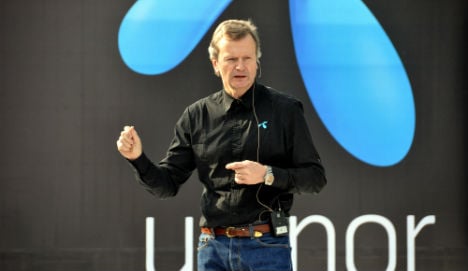"Harald Norvik, the Chairman of the Board of Directors of Telenor ASA, today informed the Board that he will resign," the company said in a statement.
"The Minister of Trade and Industry, Mr. Trond Giske … today expressed a lack of confidence in the Chairman of Telenor, following the handling of the TV2 issue in January this year," it explained.
"I have therefore decided to step down as Chairman in Telenor," Norvik said in the statement.
The company said Norvik, who has served as board chairman since May 2007, would remain in his post until his successor was elected at the next corporate assembly.
Danish media group Egmont, which co-founded TV2 in 1991, bought the remaining 50 percent of the Norwegian broadcaster's stock on January 9 for 2.1 billion Norwegian kroner (278 million euros, $365 million) from Norway's A-pressen media group, of which Telenor owns 44 percent.
"It is a sad day if TV2 now leaves Norway. It was a national project to start TV2 and an important lift for media Norway," Giske told national broadcaster NRK in January, saying it was sad to see the "family silver" leave the country.


 Please whitelist us to continue reading.
Please whitelist us to continue reading.
Member comments